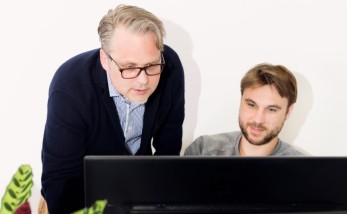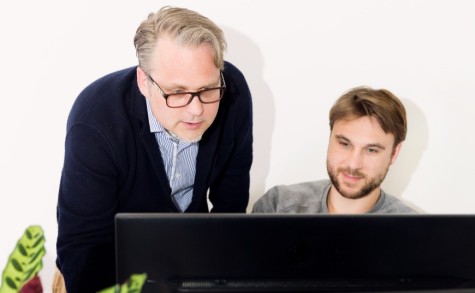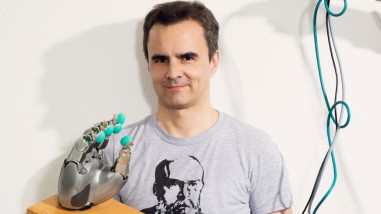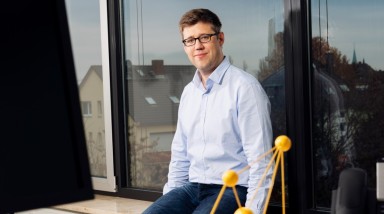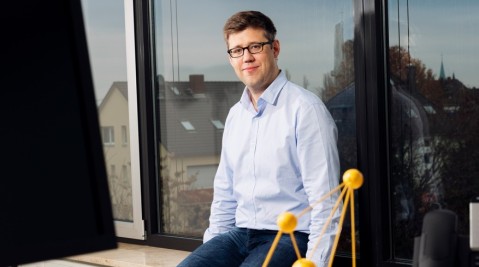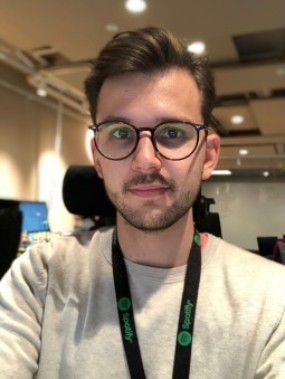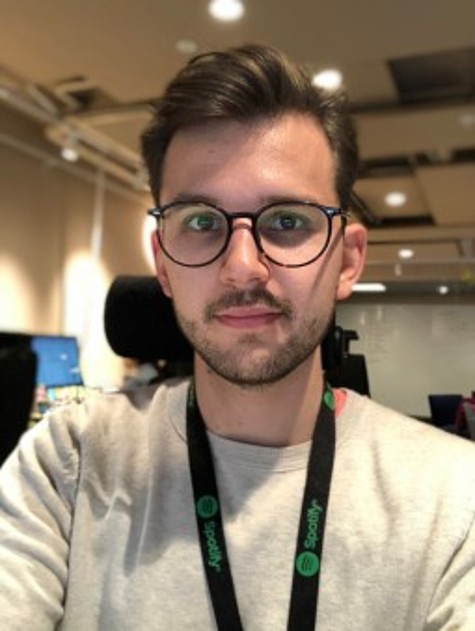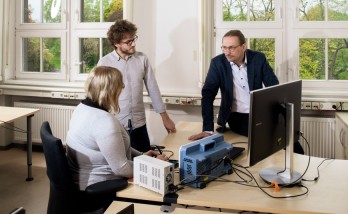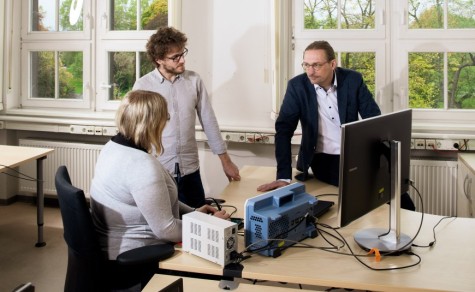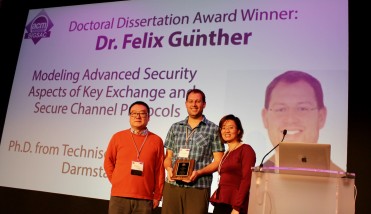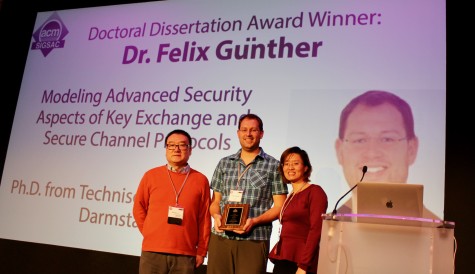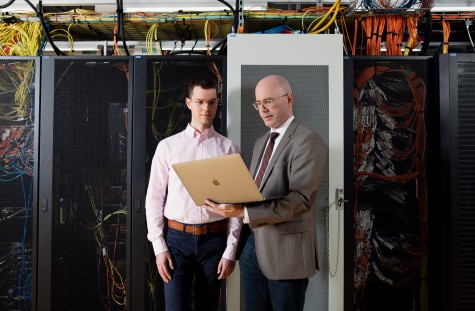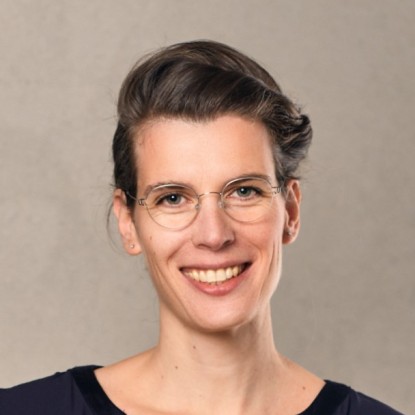-
![KI Roboterkopf]() Picture: TU Darmstadt
Picture: TU Darmstadt![KI Roboterkopf]() Picture: TU Darmstadt
Picture: TU DarmstadtFounding of the Hesse Centre for Artificial Intelligence
2020/08/31
TU Darmstadt will be home to the spokespeople and main site of the centre
The new Hessian Centre for Artificial Intelligence (AI Centre Hesse) – funded by the State of Hesse and with its main site at TU Darmstadt – aims to deliver excellent basic research, focus on specific practical applications to find answers to the important challenges of our time and transfer the knowledge to business and society.
-
![kersting nature]() Picture: Katrin Binner
Picture: Katrin Binner![kersting nature]() Picture: Katrin Binner
Picture: Katrin BinnerTrust in AI but not blindly
2020/08/13
TU research team publishes results in “Nature Machine Intelligence”
Artificial intelligence is sometimes met with scepticism but it has earned our trust. A research team at TU Darmstadt headed by Professor Kristian Kersting describes how to achieve this using a clever approach to interactive learning in the magazine “Nature Machine Intelligence”.
-
![crossing]()
![crossing]()
Apply now!
2020/07/29
CROSSING Female Student Mentoring and Networking Program.
You are enrolled in a study program that is relevant for the Collaborative Research Center Cryptography-Based Security Solutions (CRC CROSSING), e.g. IT security, computer science, physics, or a related field at TU Darmstadt or computer science at University of Paderborn or University of Duisburg-Essen? You are interested in the development of cryptography-based security solutions of the future? You want to learn more about science and research? Then the CRC CROSSING invites you to apply for the CROSSING Female Student Mentoring and Networking Program.
-
![Professor Jan Peters, Ph.D.]() Picture: Katrin Binner
Picture: Katrin Binner![Professor Jan Peters, Ph.D.]() Picture: Katrin Binner
Picture: Katrin BinnerArtificial Intelligence for flexible robots
2020/07/28
Proof of Concept: Professor Peters receives 150.000 euros from European Research Council
Professor Jan Peters has been awarded a “Proof of Concept” grant of 150,000 euros by the European Research Council (ERC). He receives the award for his project “AssemblySkills”. The aim of the project is to give robots the ability to learn autonomously with the help of artificial intelligence.´
-
![Prof. Stefan Roth]()
![Prof. Stefan Roth]()
Stefan Roth receives Longuet Higgins Prize 2020
2020/06/16
Fundamental contribution to Computer Vision
Professor of Computer Science Stefan Roth is today honoured with the Longuet Higgins Prize 2020 for fundamental contributions in the field of computer vision. With this prize, a jury of experts each year highlights a publication that was published exactly ten years earlier and had a lasting influence on the further development of computer vision during this time. The award is presented at the prestigious CVPR conference and is endowed with a plaque and $3,000.
-
![]() Picture: Katrin Binner
Picture: Katrin Binner![]() Picture: Katrin Binner
Picture: Katrin BinnerGoogle Women Techmakers Scholarship for computer science for Kristina Hostáková
2020/05/26
Kristina Hostáková – Ph.D. student from the Applied Cryptography research group at the department of omputer Science – was selected to receive the Women Techmakers Scholarship for computer science sponsored by Google as one of 20 scholars from the EMEA region. T
-
![]() Bild: Katrin Binner
Bild: Katrin Binner![]() Bild: Katrin Binner
Bild: Katrin BinnerDistinguished award for Professor Sebastian Faust
2020/04/21
Cryptography expert receives the Copernicus Award
Their many years of joint cutting-edge research in the field of cryptography and IT security is honoured with a prestigious award: Sebastian Faust, Professor of Computer Science at the Technical University of Darmstadt, and Professor Dr. Stefan Dziembowski (University of Warsaw) will each receive half of the Copernicus Award 2020 of the Deutsche Forschungsgemeinschaft (DFG, German Research Foundation) and the Fundacja na rzecz Nauki Polskiej (FNP, Foundation for Polish Science), which is endowed with 200,000 euros.
-
![]()
![]()
Jonas Pfeiffer receives IBM PhD Fellowship Award
2020/04/06
First year PhD student Jonas Pfeiffer was selected to receive a 2020 IBM PhD Fellowship Award . This highly competitive award honors and supports exceptional PhD students in pioneering research areas. Jonas Pfeiffer is pursuing his PhD, supervised by Prof. Iryna Gurevych, at the UKP Lab where his focus is on on multi-modal, multi-lingual and multi-task machine learning.
-
![]() Bild: Katrin Binner
Bild: Katrin Binner![]() Bild: Katrin Binner
Bild: Katrin BinnerA better poker face for computers
2020/04/03
Protection against attacks via side channels
Spectacular security loopholes discovered in modern processors are setting new challenges for scientists: Computer Science Professor Heiko Mantel and his team are studying the danger of difficult to detect attacks via so-called side channels and possible countermeasures.
-
![daniel demmler]()
![daniel demmler]()
Daniel Demmler is Finalist in the CAST/GI IT-Security PhD Thesis Award
2020/03/11
Former ENCRYPTO PhD student Daniel Demmler is in the final round of the CAST/GI PhD thesis award for IT-Security 2020 . He will present his thesis at the finale at Sicherheit 2020 in Göttingen on Thu, 19 March 2020. From 2013 to 2018, he did his doctorate “Towards Practical Privacy-Preserving Protocols” with distinction at the ENCRYPTO group. He is a postdoc at Uni Hamburg since 2019.
-
![energy robotics]() Bild: Patrick Bal
Bild: Patrick Bal![energy robotics]() Bild: Patrick Bal
Bild: Patrick BalAutonomous overseers
2020/03/06
TU graduates and TU robotics experts found „Energy Robotics“
Four graduates and the computer science professor and robotics expert Oskar von Stryk have founded the company “Energy Robotics”. Their software for autonomous inspection robots has made the team a global leader in the market for monitoring oil, gas and chemical plants. An example of the successful transfer of ideas and knowledge at Technical University (TU) of Darmstadt.
-
![ACM SIGSAC Doctoral Dissertation Award-Preisträger Dr. Felix Günther]() Bild: Mia Robertson
Bild: Mia Robertson![ACM SIGSAC Doctoral Dissertation Award-Preisträger Dr. Felix Günther]() Bild: Mia Robertson
Bild: Mia RobertsonDr. Felix Günther awarded with ACM SIGSAC Doctoral Dissertation Award
2019/11/13
Award for outstanding PhD theses in IT Security
At this year's flagship security conference ACM CCS 2019 in London, Dr. Felix Günther was awarded the ACM SIGSAC Doctoral Dissertation award on November 13, 2019. The highly competitive award recognizes internationally outstanding PhD theses in computer and information security and includes prize money of 1,500 US dollar.
-
![]()
![]()
Privacy-preserving Internet Services
2019/09/03
ERC Starting Grant for Research in Security and Privacy
Professor Thomas Schneider from the Department of Computer Science of TU Darmstadt was awarded an ERC Starting Grant by the European Research Council (ERC). His project “PSOTI” obtains funding of about 1.5 million Euros over a period of five years. This again underlines the high importance of research in Security and Privacy at TU Darmstadt.
-
![Picture: EU Parlament, CC BY-NC-ND 2.0]() Bild: EU Parlament
Bild: EU Parlament![Picture: EU Parlament, CC BY-NC-ND 2.0]() Bild: EU Parlament
Bild: EU ParlamentEuropean University “UNITE!” is coming
2019/06/26
TU Darmstadt together with six universities successful in Initiative competition
TU Darmstadt is awarded the title of “European University” by the EU Commission, together with six European technical universities. The alliance known as “UNITE!” will receive five million Euro of funding for three years. The aim is to create a trans-European campus.
-
![Dr. Sebastian Rinke (li.) und Professor Felix Wolf im Gebäude des Lichtenberg-Hochleistungsrechners der TU Darmstadt. Bild: Katrin Binner]() Bild: K. Binner
Bild: K. Binner![Dr. Sebastian Rinke (li.) und Professor Felix Wolf im Gebäude des Lichtenberg-Hochleistungsrechners der TU Darmstadt. Bild: Katrin Binner]() Bild: K. Binner
Bild: K. BinnerSimulated synapses
2019/06/24
Research at the Institute of Parallel Programming
Computer scientists from TU Darmstadt are using a trick from astrophysics to predict the rewiring of nerve cells in the brain. The aim of their model is to support neurosurgeons and advance artificial intelligence.
Computer Science
News
Archive



